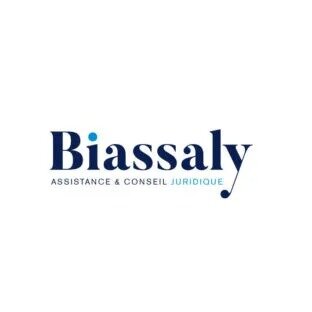Best Hiring & Firing Lawyers in Gabon
Share your needs with us, get contacted by law firms.
Free. Takes 2 min.
Or refine your search by selecting a city:
List of the best lawyers in Gabon
About Hiring & Firing Law in Gabon:
Hiring and firing practices in Gabon are governed by the Labor Code of Gabon, which sets out the rules and regulations that employers and employees must follow in relation to employment relationships. This includes provisions regarding employee rights, termination procedures, and legal requirements for hiring and firing employees.
Why You May Need a Lawyer:
While hiring and firing may seem straightforward, there are situations where legal assistance may be necessary. This can include disputes over wrongful termination, discrimination in the hiring process, or violations of labor laws. A lawyer can help you understand your rights, navigate complex legal procedures, and represent your interests in court if necessary.
Local Laws Overview:
In Gabon, employers are required to provide written employment contracts to employees, outlining terms of employment including salary, work hours, and termination procedures. The Labor Code also sets out specific rules for termination, including notice periods and severance pay requirements. Discrimination based on race, gender, religion, or disability is prohibited by law.
Frequently Asked Questions:
1. Can an employer terminate an employee without cause?
Employers in Gabon can terminate an employee without cause, but they must provide proper notice and follow the procedures outlined in the Labor Code.
2. What are the notice periods for termination?
The notice periods for termination vary depending on the length of the employee's service, as outlined in the Labor Code.
3. Is severance pay required when terminating an employee?
Severance pay is required when an employee is terminated by the employer, based on the length of service and other factors specified in the Labor Code.
4. Can employees file a lawsuit for wrongful termination?
Employees can file a lawsuit for wrongful termination if they believe their rights have been violated, such as discrimination or retaliation for exercising their legal rights.
5. Are there specific rules for hiring foreign workers?
Employers hiring foreign workers in Gabon must comply with immigration laws and obtain the necessary permits for their employees.
6. What are the legal requirements for conducting background checks on potential employees?
Employers must obtain consent from the employee before conducting a background check, and must follow data protection laws when handling sensitive information.
7. Can employees be terminated for participating in union activities?
Employees cannot be terminated for participating in union activities, as protected by labor laws in Gabon.
8. How can employers protect themselves from wrongful termination claims?
Employers can protect themselves by following the procedures outlined in the Labor Code, maintaining proper documentation of employment decisions, and seeking legal advice when necessary.
9. Are there specific rules for terminating employees during a probationary period?
Employers must follow the termination procedures outlined in the employment contract or probationary agreement, including providing notice and following due process.
10. What should employees do if they believe they have been wrongfully terminated?
Employees who believe they have been wrongfully terminated should seek legal advice to understand their rights and options for recourse, such as filing a complaint with labor authorities or pursuing a lawsuit.
Additional Resources:
For more information on hiring and firing laws in Gabon, you can consult the Ministry of Labor or seek assistance from legal professionals specializing in employment law.
Next Steps:
If you require legal assistance in hiring and firing matters in Gabon, it is advisable to seek advice from a qualified lawyer who can guide you through the legal process and protect your rights as an employer or employee.
Lawzana helps you find the best lawyers and law firms in Gabon through a curated and pre-screened list of qualified legal professionals. Our platform offers rankings and detailed profiles of attorneys and law firms, allowing you to compare based on practice areas, including Hiring & Firing, experience, and client feedback.
Each profile includes a description of the firm's areas of practice, client reviews, team members and partners, year of establishment, spoken languages, office locations, contact information, social media presence, and any published articles or resources. Most firms on our platform speak English and are experienced in both local and international legal matters.
Get a quote from top-rated law firms in Gabon — quickly, securely, and without unnecessary hassle.
Disclaimer:
The information provided on this page is for general informational purposes only and does not constitute legal advice. While we strive to ensure the accuracy and relevance of the content, legal information may change over time, and interpretations of the law can vary. You should always consult with a qualified legal professional for advice specific to your situation.
We disclaim all liability for actions taken or not taken based on the content of this page. If you believe any information is incorrect or outdated, please contact us, and we will review and update it where appropriate.
Browse hiring & firing law firms by city in Gabon
Refine your search by selecting a city.









